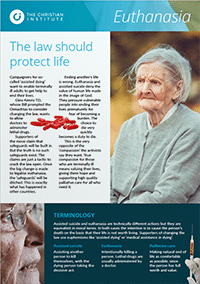Our society does not know how to deal with death, but fear should not be our guide to cope with it, the head of the Roman Catholic Church in England and Wales has said.
Archbishop Vincent Nichols, speaking at Westminster Cathedral, said that in the face of attempts to weaken assisted suicide and euthanasia laws, life needs to be respected.
He also called on the NHS to seek to treat all patients with “true compassion”.
In his sermon Archbishop Nichols said: “In the care of the dying there is so much disquiet and dispute today: campaigns for assisted suicide and euthanasia; fears of unrelieved suffering and loss of control; fears of over-treatment – that is, of inappropriate aggressive medical interventions as life nears its end.
“Then there is the opposite fear of under-treatment or neglect – sometimes, for instance, food and water may be simply put in front of patients unable to feed themselves who are then noted as having refused their food.
“We do not know how to deal with death. But fear cannot be our guide.”
He also said the constitution of the NHS contains “splendid sentiments”, such as a commitment to “respond with humanity and kindness to each person’s pain”.
However, Archbishop Nichols said sometimes this ambition is not fulfilled, often because of “pressures of control and delivery which can impair and diminish the ability of staff to care properly”.
He also highlighted comments from a recent publication by the Roman Catholic Church on spiritual care for the dying.
It noted: “Every human life and the person who lives it are always more than a bundle of genes and actions.”
The document went on: “If we reduce death to a clinical event and manage it through a series of standard procedures then we do not deal with death well, either clinically or humanly.”
Final guidance from the Director of Public Prosecutions (DPP) on the prosecution of assisted suicide cases is expected soon.
The DPP, Keir Starmer QC, was forced to produce the guidelines following a ruling in favour of assisted suicide campaigner Debbie Purdy.
Earlier this month one of the nation’s most respected cancer doctors warned that the current debate surrounding euthanasia has become “greatly exaggerated”, and that there is actually “very little desire” for it.
Professor Karol Sikora’s commented: “In all my 37 years as a cancer doctor, I have never had a patient who asked for euthanasia.
“In my line of work, it is not an issue. People don’t want to die.
“And, usually, we can make patients comfortable, thanks to modern drugs.”
The DPP’s provisional guidelines have been widely criticised.
A coalition of five disability groups said in December that “to see suicide as a right solution is to abandon hope. Severely ill and terminally ill people do not deserve society to give up on them.”
The disability groups warned that it was “profoundly unhelpful for society to be endorsing or encouraging any disabled person to see their request for assistance to die as reasonable or completely understandable.”

